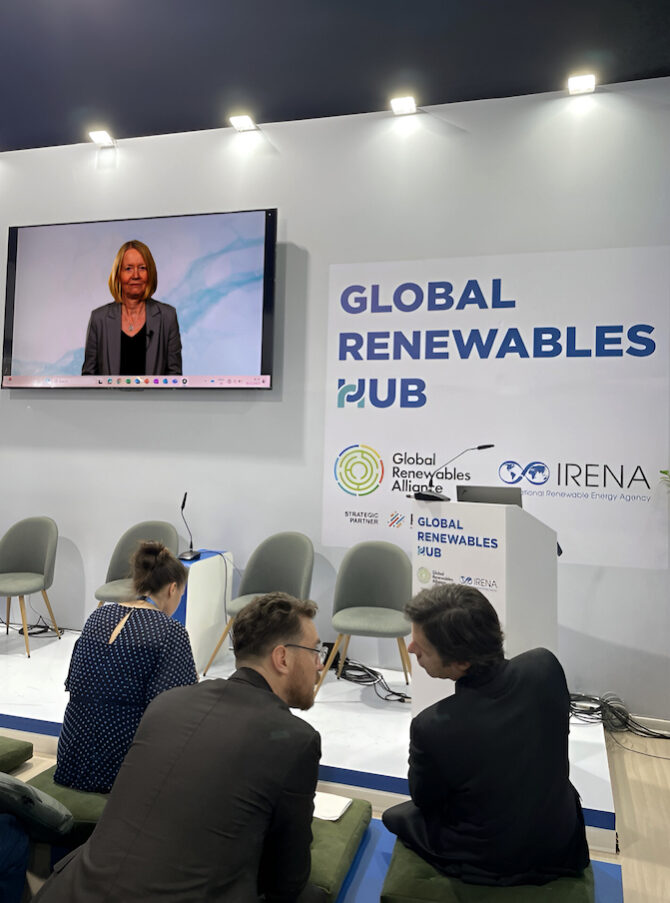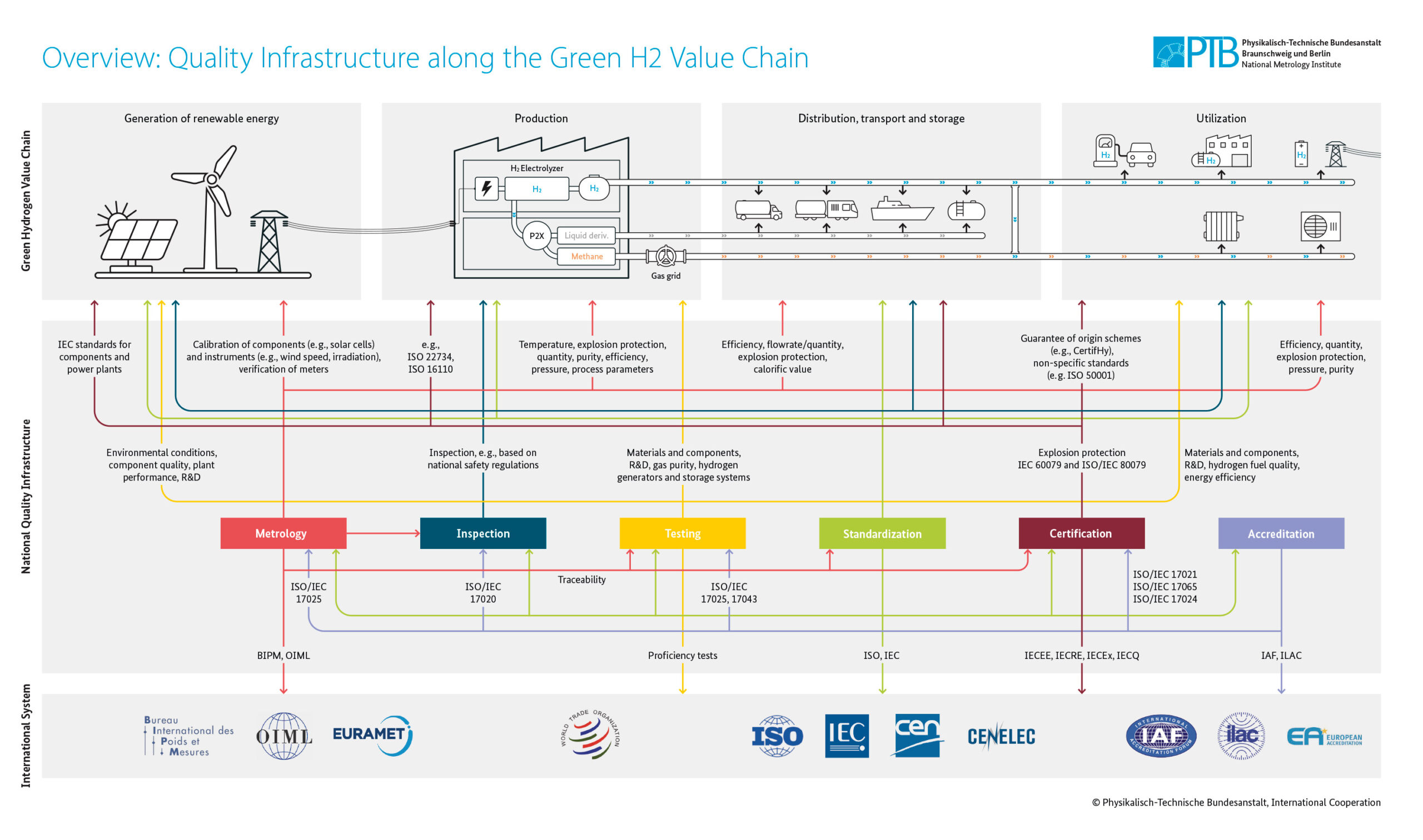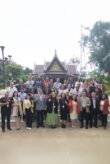On November 16th, the International Renewable Energy Agency (IRENA) and the Physikalisch-Technische Bundesanstalt (PTB) jointly presented the most recent IRENA publication, “A Quality Infrastructure Roadmap for Green Hydrogen”, at a side event of the World Climate Conference COP29 in Baku, Azerbaijan. This study was commissioned and accompanied in terms of its content and strategy by PTB with financial support from Germany’s Federal Ministry for Economic Cooperation and Development (BMZ).
The roadmap presented is one of several important outputs of a project titled “Quality Infrastructure for Green Hydrogen: technical standards and quality control for the production and trade of renewable hydrogen”, which IRENA and PTB have collaborated on since 2022. This roadmap aims to support policy makers across the world to ensure that the implementation of their hydrogen targets and strategies can be supported by a robust quality infrastructure (QI) ecosystem.
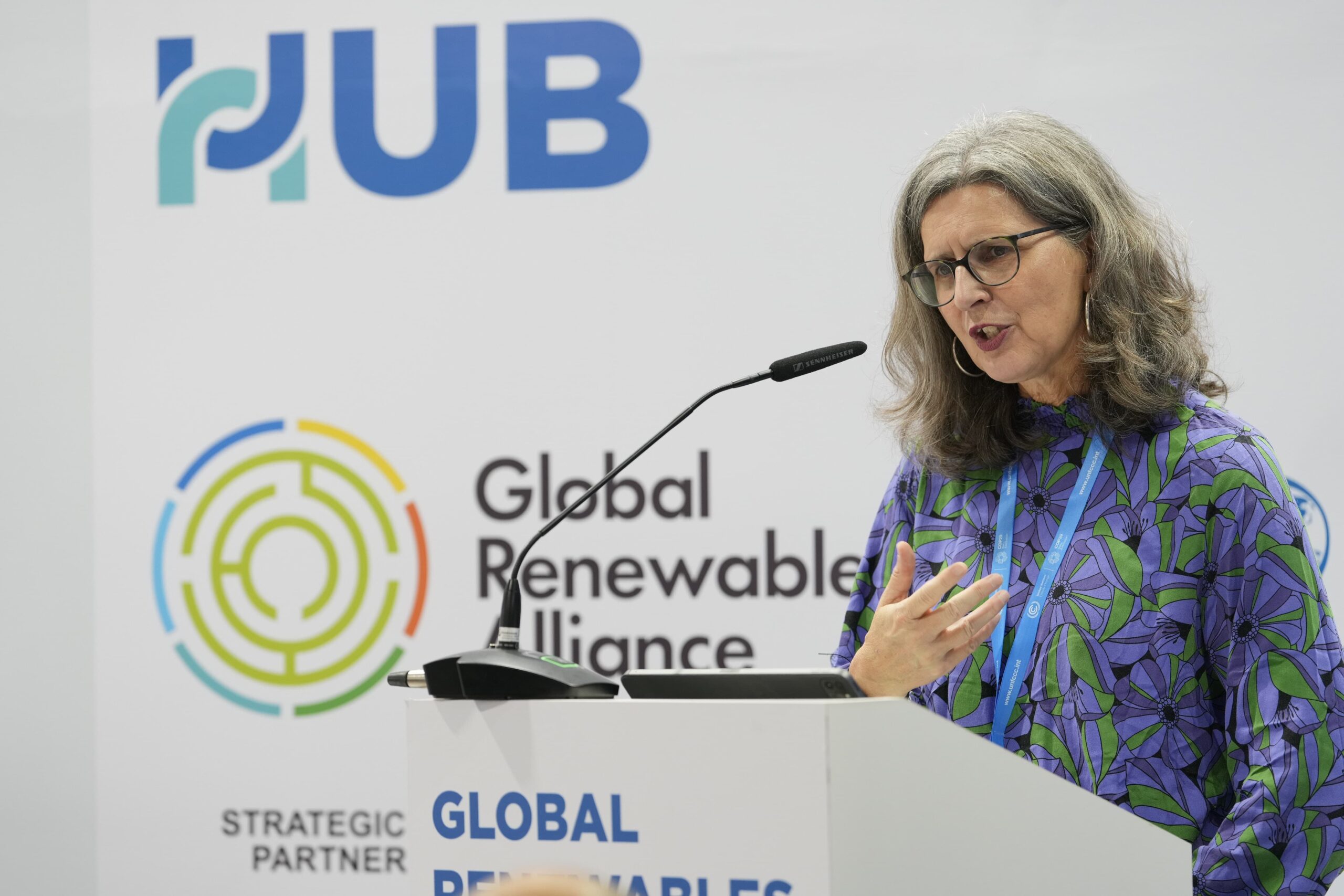
The Saturday side event was titled “Quality infrastructure as an enabler of sustainable green hydrogen value chains”and saw the launch of the global roadmap and a panel discussion on the importance of having a robust QI system in place, as countries continue to explore the integration of green hydrogen into their energy transition efforts. It was co-hosted by IRENA and PTB at the Global Renewables Hub of COP29. Heike Henn, Head of BMZ Division 42 (Climate, Energy, Environment), opened the event and underlined the ministry’s perspective on hydrogen and its value chain, the contribution of international collaboration in developing the sector, and the role of partnerships as a delivery mechanism. At the same time, she highlighted the importance of QI for emerging technologies used in the production and utilization of hydrogen and its derivatives.
After giving a keynote presentation on the QI roadmap, Dr. James Walker, Team Lead – Renewable Gases at IRENA, hosted a panel discussion with various guests, including Abdelhamid Khalfallah (Tunisian Ministry of Industry, Mines and Energy), Dr. Howard Porter (International Electrotechnical Commission – IEC), Richard Collin (United Kingdom Accreditation Service), and Dr. Eleanor Webster (Mission Innovation). The event was concluded by Philippe Metzger (IEC), who shared the IEC’s view on the value of international collaboration in this area, and in a video message by PTB president Dr. Cornelia Denz with a metrology perspective on the topic.
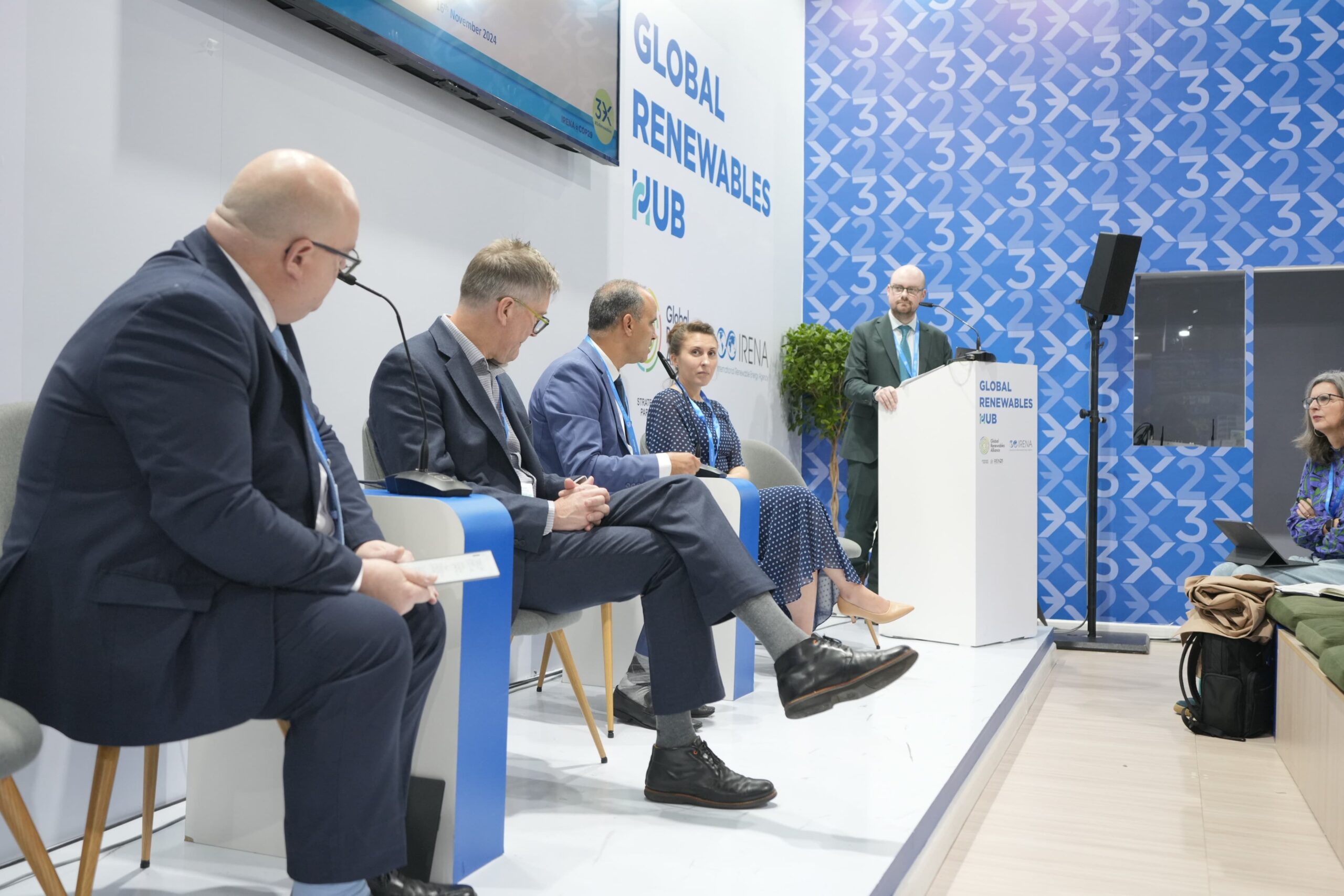
Green hydrogen is produced exclusively from renewable power and is widely recognized as a key pillar in replacing fossil fuels and decarbonizing sectors that cannot easily be electrified, such as steel production or shipping and aviation. This transition will require the development of new supply chains, with implications for the international trade of renewable hydrogen and its derivatives and the commodities produced with it. QI is vital to developing sustainable, safe, and productive value chains in this emerging sector. It encompasses the fields of metrology, standardization, inspection, testing, certification, and accreditation along the hydrogen value chain, as shown by the graphic below.
The way forward: IRENA’s roadmap approach was piloted in a Tunisia case study that will feed into a recently started collaboration between PTB and the Tunisian Ministry of Industry, Mines and Energy on developing the national QI for green hydrogen. PTB and IRENA are putting joint efforts into disseminating the roadmap (as well as the lessons learned from the case study) for the benefit of other countries that are currently preparing to invest in a green hydrogen economy.
Cover Image © IRENA


